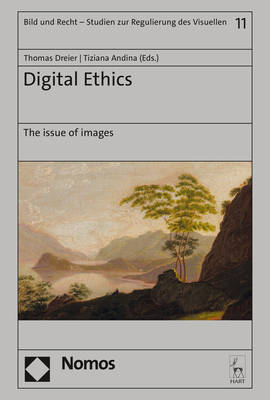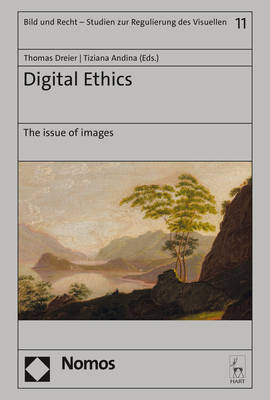
- Afhalen na 1 uur in een winkel met voorraad
- Gratis thuislevering in België vanaf € 30
- Ruim aanbod met 7 miljoen producten
- Afhalen na 1 uur in een winkel met voorraad
- Gratis thuislevering in België vanaf € 30
- Ruim aanbod met 7 miljoen producten
Zoeken
Digital Ethics
The Issue of Images
€ 76,45
+ 152 punten
Omschrijving
Digital images raise ethical issues that have so far received only little attention. The discrete pixels of digital images can be freely combined. Compared to the dissemination of analog images the net enables dis-proportionately greater control over how digital images are to be distributed. As of today, the consequences for contemporary visual communication as well as for the cultural visual memory are all but clear. Can there be an applied ethics of digital images at all? What could be the content of such a normative ethics? And what is the relationship between ethics and the law of digital images? This volume brings together the contributions to an interdisciplinary German-Italian conference at Villa Vigoni, sponsored by the DFG.
Specificaties
Betrokkenen
- Uitgeverij:
Inhoud
- Aantal bladzijden:
- 426
- Taal:
- Engels
- Reeks:
- Reeksnummer:
- nr. 11
Eigenschappen
- Productcode (EAN):
- 9783848788415
- Verschijningsdatum:
- 31/05/2022
- Uitvoering:
- Hardcover
- Formaat:
- Genaaid
- Afmetingen:
- 152 mm x 224 mm
- Gewicht:
- 757 g

Alleen bij Standaard Boekhandel
+ 152 punten op je klantenkaart van Standaard Boekhandel
Beoordelingen
We publiceren alleen reviews die voldoen aan de voorwaarden voor reviews. Bekijk onze voorwaarden voor reviews.







